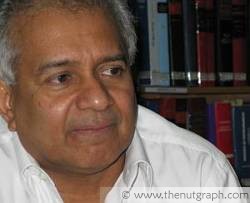The power of the Rulers in rejecting appointments

by Tommy Thomas, 5th September 2007
“Hence, the legal consequences of failure to consult the Conference of Rulers or the Conference not approving a candidate submitted by the Executive are not specified therein, thereby suggesting that all the authorities referred to in that Article must approve a particular candidate. Thus, in my opinion, the Conference of Rulers is entitled to reject a candidate for appointment submitted to it if a majority of Rulers deem him unsuitable for the constitutional office of judge.
What may be beyond their constitutional right to be consulted is to repeatedly reject several candidates for a single position which would then remain vacant for a substantial period of time resulting in a constitutional impasse. No doubt, the good sense of those involved in the selection process would ensure that such an eventuality does not occur.
The checks and balances system under Article 122 B(1) was put in place so that no one authority has sole monopoly over judicial appointments. In order for the constitutional system to work efficaciously some “give and take” has to take place. Consensus is the objective; not brushing aside of the views of the major actors.
The importance of the constitutional right of the Conference of Rulers to be consulted on judicial appointments under Article 122 B(1) is further demonstrated by Article 38 (4) which declares that no law directly affecting “the privileges, position, honour or dignities of the Rulers shall be passed without the consent of the Conference of Rulers”.
In my opinion, the right to be consulted under Article 122 B(1) constitutes a “privilege” or “position” within the meaning of Article 38 (6). Hence, the right of the Conference of Rulers to be consulted thereunder cannot be removed or diminished without their consent.”

